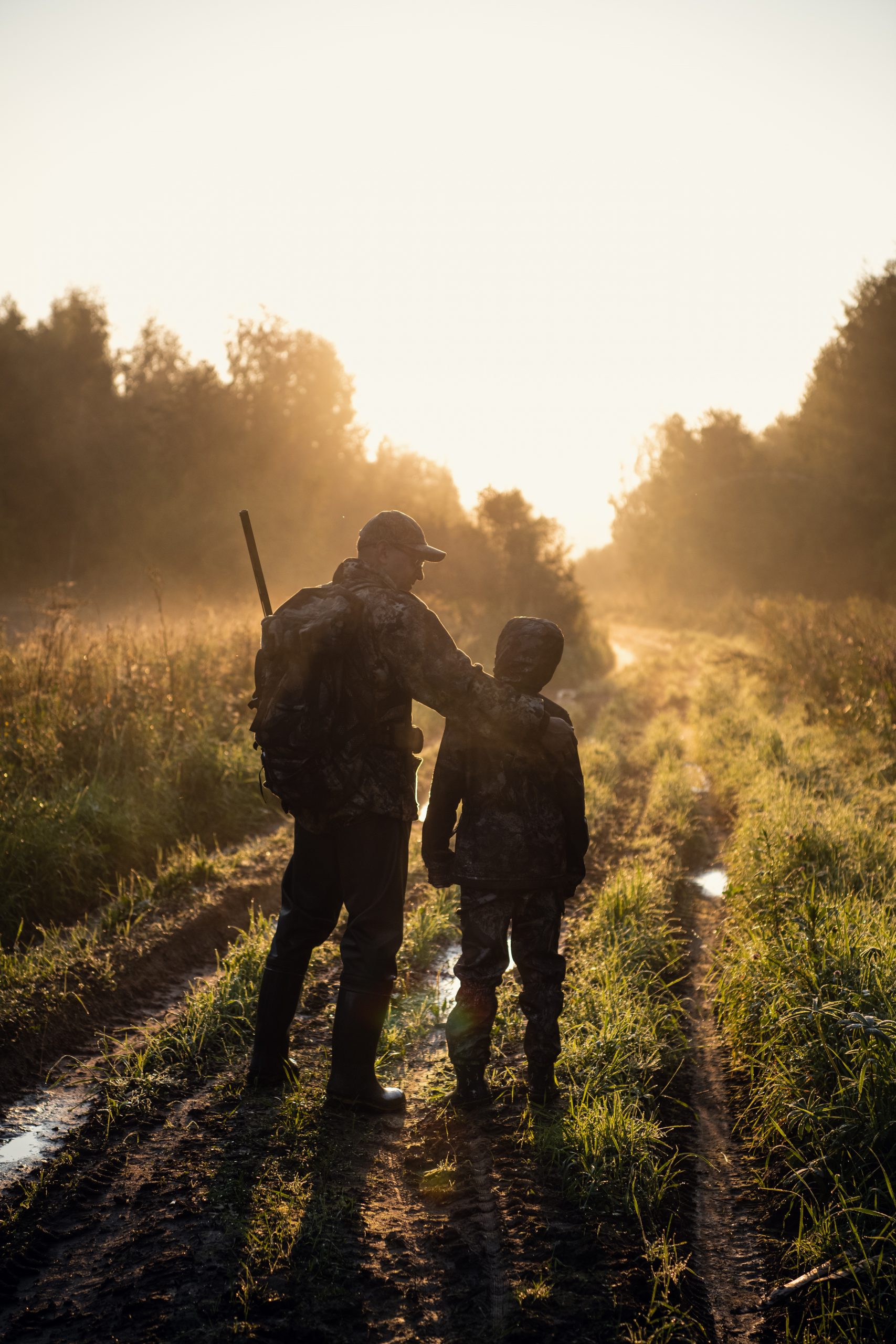Americans are increasingly distanced from their food sources, especially when it comes to meat. While a recent poll suggests that 95% of Americans eat meat at least occasionally, only approximately 5% of those same Americans hunt. These statistics suggest that a vast majority of Americans eat meat but are not familiar with where the food comes from or how it is prepared.
As meat consumption is on the rise, it is more important than ever that we teach our children where our food comes from. When children are introduced to hunting, they have the chance to learn valuable skills that stay with them well into adulthood.
Learn Where Food Comes From
Most kids are familiar with accompanying their parents to the grocery store and seeing meat displayed for sale in plastic pouches, cellophane, and Styrofoam. It is difficult not only for children, but adults, too sometimes, to understand the process of obtaining meat from a once live animal.
Kids who learn to hunt early on become more accustomed to how the food they eat daily is prepared. They learn to value the food in front of them and have a greater appreciation for the work that goes into preparing meat for consumption.
Develop an Appreciation for Wildlife
When children are introduced to hunting, they can gain more respect for wildlife and the outdoors. Understanding that food supplies are not endless can help them appreciate animals and treat them with kindness later in life.
Kids also learn more about wildlife, including their natural habitats. They also learn about the food chain, including the delicate balance that nature requires for humans and animals to live in harmony with one another.
Establish a Connection with Nature
With the 21st century keeping many kids indoors with video games and computers, it is becoming more difficult for families to connect with nature. Taking your child with you on a hunt can help them develop a relationship with the outdoors. Children who connect with nature at an early age may be more likely to practice leave no trace policies in the future. They can also develop skills that will help them to camp as adults.
Learn a Life Skill
One of the most important benefits of teaching your child to hunt is that they will be equipped with a life skill that many other people do not have. With rates of hunting declining, less people have the skills required to kill and clean an animal properly. Teaching your child to hunt will prevent them from having to rely on corporations to produce food for them. Learning to obtain food from the wild is an invaluable skill that can one day make the difference between life and death.
Reminders Before Teaching Your Child to Hunt
Before bringing your child along on your next hunting trip, you should check your local laws to determine whether they are legally able to hunt yet. Some states have minimum age requirements before a person can hunt. Even if they are legally able to hunt, you need to be sure that the child is mature enough to be near firearms. Another consideration is whether you as a parent are ready to take your child with you. Children are by nature loud and unpredictable, and you will need to make sure you are prepared for your child to unintentionally make noises that scare off wildlife or get bored during slower moments of the trip.
Making sure both you and your child are adequately prepared for his or her first hunt will help your first trip go smoothly and enjoyably.

